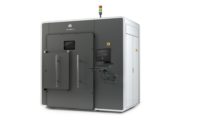The U.S. Department of Energy (DOE) Industrial Efficiency and Decarbonization Office (IEDO) announced a $38 million funding opportunity that will accelerate the innovative, cross-sector technologies required to create a clean energy economy. Additionally, DOE announced a notice of intent (NOI) to issue a $83 million funding opportunity that will decrease emissions in the hardest to decarbonize industrial subsectors. Decarbonizing the U.S. industrial sector is an essential component of President Biden’s Investing in America agenda and is key to achieving the nation’s clean energy goals. By accelerating the development and adoption of sustainable technologies that increase efficiency and eliminate industrial greenhouse gas (GHG) emissions, this funding will help tackle the climate crisis, boost the competitiveness of domestic manufacturing, and create good-paying jobs for American workers.
The U.S. industrial sector is central to our nation’s economy, creating the products society relies on —from the chemicals used to create consumer products, to the cement and concrete in our roads, and the steel and iron in our buildings and cars. Yet, this vital sector accounts for one-third of all energy-related domestic GHG emissions. Achieving a net-zero industrial sector requires an aggressive, multidimensional approach. This NOI and FOA focus on a two-pronged research, development, and demonstration (RD&D) strategy to drive industrial decarbonization: tackling the complex systems at the heart of the most energy- and emissions-intensive industries and pursuing cross-sectoral enabling technologies for challenges that are common across many industries.
The Cross-Sector Technologies (CST) FOA focuses on high-impact, applied research, development, and pilot demonstration projects to advance the transformational cross-sector technologies and innovations required to reduce energy use and GHG emissions across the industrial sector. FOA topics include electrification of industrial heat, efficient energy use in industrial systems, and decarbonizing organic wastewater and wet waste treatment.
View the CST FOA. Concept papers are due December 18, 2023, at 5:00pm ET, and full applications are due March 20, 2024, at 5:00pm ET. EERE envisions awarding multiple financial assistance awards in the form of cooperative agreements. The estimated period of performance for each award will be approximately 24 to 36 months.
The Energy- and Emissions-Intensive Industries (EEII) funding opportunity will focus on applied RD&D for the highest GHG-emitting industrial subsectors, specifically: chemicals and fuels; iron and steel; food and beverage; building and infrastructure materials (including cement and concrete, asphalt pavements, and glass); and forest products. Together, these industries account for more than 65% of U.S. industrial manufacturing emissions that have global impacts. Decarbonizing these subsectors will have immediate impacts on overall manufacturing and far-reaching impacts on domestic supply chains across the U.S. economy.
This funding opportunity will also include a joint topic with the Hydrogen and Fuel Cell Technologies Office (HFTO) and the Office of Fossil Energy and Carbon Management (FECM) focused on pre-front-end engineering and design (pre-FEED) studies that support the development of decarbonized industrial processes using approaches that include innovative, pre-commercial technologies. Potential pre-FEED areas of interest include: (a) integration of green hydrogen as a feedstock in clean fuels, chemicals, and iron and steel production; (b) carbon capture for select industrial sectors; and (c) integration of multiple decarbonization technologies for chemical production, mineral processing, and iron and steel.
For more information, visit https://www.energy.gov/eere/?utm_medium=email&utm_source=govdelivery.







